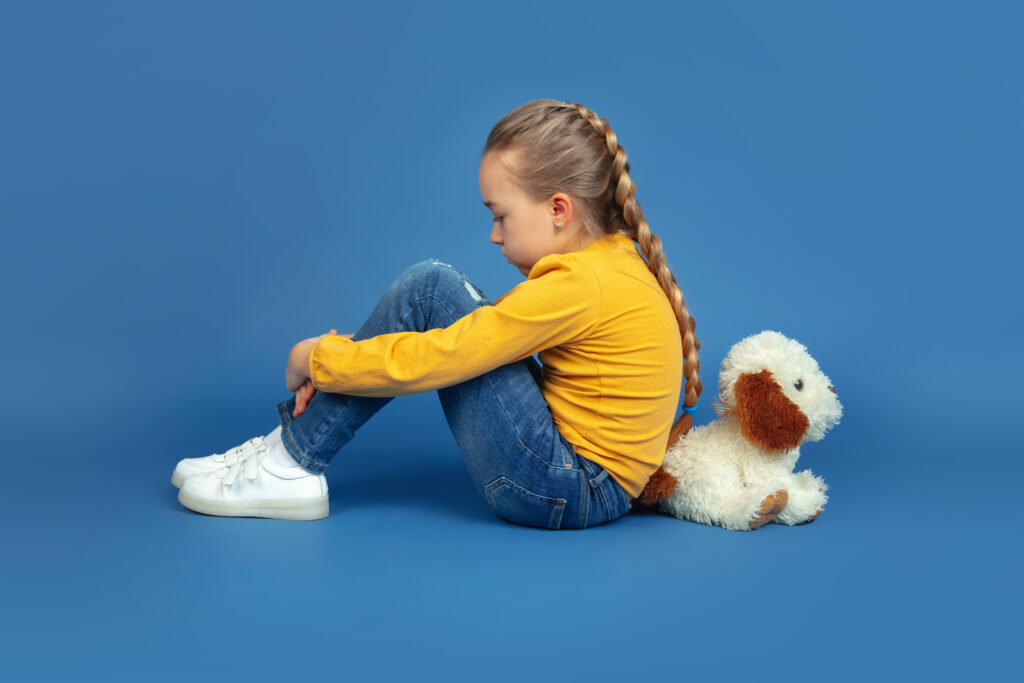Psychology Behind Dangerous Social Media Challenges

DISCLAIMER: This article is made for educational purposes only and serves for general information. It is not intended nor implied to be a substitute for professional medical advice, diagnosis, or treatment.
“A young boy from the UK dies after reportedly attempting the viral TikTok ‘blackout challenge’.” This recent headline left the world heartbroken and made parents scared for their children.
The blackout challenge, also known as ‘the choking game’, is only one example in a sea of trends that are flooding social media. It consists of choking oneself to the point of unconsciousness. Those who enjoy scrolling through TikTok have also heard of the ‘skull breaker challenge’ and ‘penny challenge’. These viral challenges may seem like a game, but what they actually represent is children risking their deaths – by suffocation, head injury, or electrocution.
And while platforms do the best they can to avoid responsibility, we can’t help but wonder: how can this even happen?
In this article, we’ll take a look at the psychology behind these challenges. We’re hoping to raise awareness about this widespread problem, and give you some insight into our children’s minds. And to dive even deeper into the topic and spark a discussion, we prepared some questions for you!
1. Misestimation of norms
Dr. Gretchen Brion-Meisels, a behavioral scientist, explains that puberty is the time when a child’s mind is transitioning into an adult. It might seem counterintuitive, but the world is so much more complex to them than it is to us adults. By going through difficult mental and emotional states, they are trying to understand what’s normal, and they want to know if they are normal, too. They want to fit into the majority.
So when they scroll through their feed and see 20 posts of other “cool kids” doing the Kylie Jenner lips challenge, they might think to themselves “wow, everyone is doing it, so I must do it too!” Because they perceive that others are doing the challenge, they believe it’s a perfectly normal thing to do.
What do you think – how can we use social media to convince children that these challenges are not “normal”?
2. FOMO
FOMO, or fear of missing out, is the anxiety we feel when we’re excluded from pleasurable and rewarding experiences. Studies have shown that this fear is especially on the rise in today’s society. It seems that for teenagers, being without their phones and away from social media is a big cause for concern. A 2020 research paper suggests that this fear plays a role in social media use in teenagers, which can, unfortunately, evolve into full-blown internet addiction.
In a study published in Human Factors in Healthcare, researchers wanted to examine the motivation behind participating in dangerous TikTok challenges. When asked about it, teens who participated in the study mentioned the fear of missing out as one of the motivating factors. When they see trending challenges, they might feel like they’re missing out on the fun. When in reality, they’re missing out on a trend that can cost them their lives.
Could encouraging face-to-face interaction help teens combat FOMO on social media?
3. Belonging
Brittany Morris, a licensed clinical social worker from Virginia says that “children and teens are most susceptible to these dangerous challenges because of the need for belonging.” She explains how in those early teen and adolescent years, kids desire to be accepted by others. By connecting with their friends, they’re also discovering their identities based on good or bad peer feedback.
Generally, it’s a great thing for teens to have a healthy group of friends. But sometimes, while hanging out, they actually have a bad influence on each other. A 2017 research study suggests that adolescents find it more difficult to control impulsive behaviors if they are with their peers or if high emotions are involved. Authors also mention that social media has the power to influence a teen’s decision-making skills by connecting them to their peers.
So when their friends participate in such challenges, they want to feel like they belong to the group. Because when they feel like they belong, they feel good about themselves too.
Do you think that there’s a way to encourage healthy socializing on social media?
4. Thumbs up!
Another important reason worth mentioning is, of course, popularity. Who doesn’t want to feel liked by thousands of people? We shouldn’t judge them for wanting to be popular. Popularity is what brings together all of the reasons we mentioned earlier: feeling like they belong, like they’re accepted and appreciated.
A 2016 study published in the journal Psychological Science found adolescents were more likely to like popular photos than those with only a few likes. They preferred the more popular photo even if it depicted risky behaviors such as drinking and smoking. The same could be said for viral challenges, too. The more likes a video has, the more likely they’ll be to try it out.
How can parents and schools work together to help children build confidence and self-acceptance, so they don’t look for validation online?
5. The judgement-making area
In the end, it’s important to note the biological perspective as well. Teenage and children’s brains are still developing and maturing. For that reason, they don’t have the full capacity to really understand the risks that these challenges pose.
Dr. Desreen N. Dudley, PsyD, a clinical psychologist, and mental health quality consultant, explains that “the prefrontal cortex, which is a decision and judgment-making portion of the brain, is not fully developed in these young people. That’s why they have a harder time considering all the factors that are involved in these challenges, and they are unable to make a sound decision.”
Do you believe that social media affects critical thinking skills?
Closing thoughts
Do you think there are some other reasons behind these horrible and dangerous trends? Let us know your thoughts! Please share this article with someone who would benefit from knowing this – a parent, teacher, or even a young teen. Let’s raise awareness together and prevent more young lives from leaving us too soon.
Resources:
Ahmed, A., & Ahmed, A. (2021, November 19). TikTok researches on the riskier challenges and what drives the young population to participate in them. Digital Information World. https://www.digitalinformationworld.com/2021/11/tiktok-researches-on-riskier-challenges.html?m=1
Bloemen, N., & de Coninck, D. (2020). Social Media and Fear of Missing Out in Adolescents: The Role of Family Characteristics. Social Media + Society, 6(4), 205630512096551. https://doi.org/10.1177/2056305120965517
Eleuteri, S., Saladino, V., & Verrastro, V. (2017). Identity, relationships, sexuality, and risky behaviors of adolescents in the context of social media. Sexual and Relationship Therapy, 32(3–4), 354–365. https://doi.org/10.1080/14681994.2017.1397953
Falgoust, G., Winterlind, E., Moon, P., Parker, A., Zinzow, H., & Chalil Madathil, K. (2022). Applying the uses and gratifications theory to identify motivational factors behind young adult’s participation in viral social media challenges on TikTok. Human Factors in Healthcare, 2, 100014. https://doi.org/10.1016/j.hfh.2022.100014
Sherman, L. E., Payton, A. A., Hernandez, L. M., Greenfield, P. M., & Dapretto, M. (2016). The Power of the Like in Adolescence. Psychological Science, 27(7), 1027–1035. https://doi.org/10.1177/0956797616645673
Sweet, J. (2021, September 7). Why People Do the Milk Crate Challenge and Other Risky Stunts. Verywell Mind. https://www.verywellmind.com/why-do-people-participate-in-dangerous-viral-challenges-5200238
Cover photo: Texting photo created by rawpixel.com – www.freepik.com



Responses